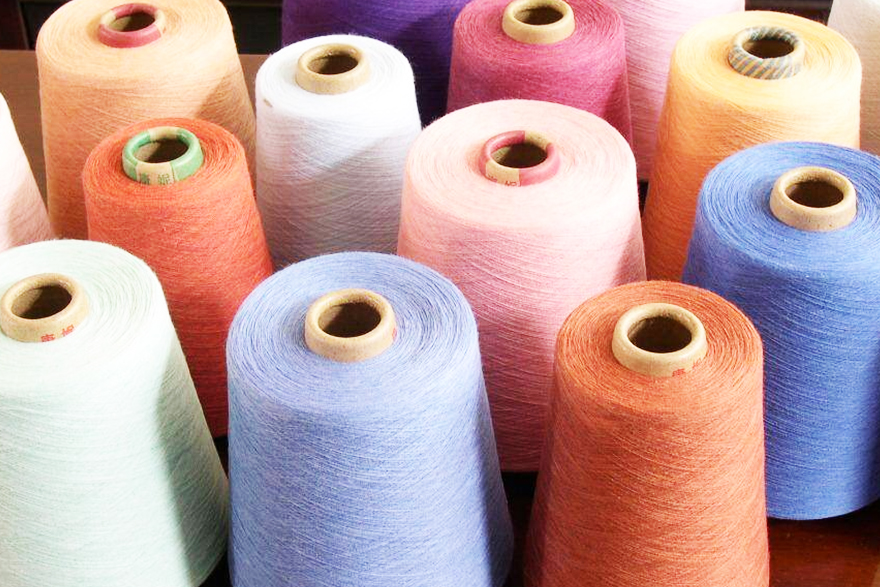If you are a normal sock wearer, you may not know much about the raw materials of the socks, maybe cotton socks are the one you often choose, but if you want to do socks business, you have to know everything about the raw materials, which is helpful to socks customization.
Now, ktsox collects all the information about socks’ raw materials, and help you find the most suitable raw material to customize socks!
Cotton: The most common material, a strong, soft fibre that retains heat when it is dry and comfortable to wear in all weather conditions. Because cotton fibres are flexible to stretch and package (which can cause bubble), socks and casual clothes made of high-content cotton are the best to wear. Cotton socks manufacturers often mix some synthetic fibres into the fabric so that you have the best feeling of both: the softness and durability of cotton, as well as the elasticity of synthetic fibres and high-tech moisture management. However, it is wrong to consider cotton socks are with 100% cotton, which is impossible for a pair of socks woven with totally cotton.
Nylon: A lightweight polymer fabric that is very strong and absorbs more moisture than other synthetic fibres. It is best suited for garments that have been stretched, such as tights, which are very easy to clean.
Polyester: A sturdy, wrinkle-resistant synthetic fabric that is fast drying and easy to clean. It is more breathable and more absorbent than nylon.
Merino Wool: A very soft, durable natural fibre that maintains a uniform temperature through insulation rather than heat capture. Merino wool keeps you cool in hot weather and keeps you warm in cold weather. Excellent breathability and moisture absorptive properties can prevent adhesion. The natural elasticity of the fine fibres allows the clothes made of it to be stretched and then be returned to its original shape, preventing sagging and bagging. Since merino wool is super absorbent and slowly dry, so it can retain heat even in the condition of damp. It is also naturally fire resistant.
Alpaca: A soft, durable, silky natural fibre, which is similar to merino wool, because it keeps you warm and hypoallergenic. Alpaca fibres are waterproof, and the weight is from light to heavy according to how they are spinning.
Bamboo fibre: It is a durable, hypoallergenic and natural microbial fibre. It is softer and breathable than cotton, which is an excellent choice for high-grade socks!
Coolmax: It is a technical fabric with moisture absorptive property developed by DuPont in 1986. It has fade resistance and shrink resistance and is usually merged with cotton, wool or spandex. It is best for the condition of extreme physical exertion and integrated with other materials to provide warmth.
Acrylic: It is a synthetic fibre. It is light, soft, warm and quick-drying. Acrylic/wool blend fabric is suitable for outdoor activities in cold weather.
Alkene (or polypropylene): It is a lightweight "super" waterproof fibre with excellent moisture absorptive ability. It is sturdy, anti-fouling, and use competitor's wool as an insulator. Besides, it is fast drying, easy to clean, and comfortable to wear!
Man-made fibre: It is an all-natural cellulose filament fibre known for its soft feel and high moisture absorption.
Silk: It is the strongest natural fibre, and it is elastic, lightweight, dust-proof, absorbent, and has top-quality insulation properties, similar to wool. The clothes made of silk is comfortable whenever you wear, but it is sensitive to sweat and requires regular care and cleaning.
Thermolite Polyester: An insulating material designed to provide weightless warmth and comfort.
Now you’ve perhaps known what kind of materials to choose from, if you want to know more about socks custom, please see:
What do You Need to Prepare to Start an Order of Socks?
Minimum Order Quantity of Socks in Different Yarns
How does the Socks Manufacturer's Factory Work?
